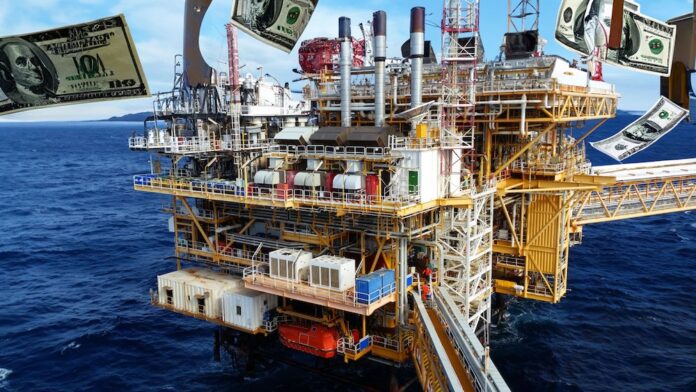It is shocking that financial institutions that do business in Africa continue to practice financial apartheid by cutting off capital and financing to oil and gas companies operating in Africa because of climate concerns. These same institutions fund gas development in Europe, where natural gas is deemed green and a fossil fuel for Africans,” says NJ Ayuk, Executive Chairman of the African Energy Chamber (AEC).
The AEC is urging banks to reevaluate their approach and is calling on global financiers to support Africa’s energy projects.
As financial institutions continue to implement policies aimed at reducing support for fossil fuel projects, Africa has seen a sharp decline in investment in the continent’s oil and gas industry. The African Energy Chamber argues that these institutions are practicing “financial apartheid,” arguing that while similar projects receive support in Europe, Africa’s high-cost energy projects are being neglected.
Major international oil companies are reducing their presence in Africa. For instance, Equinor has withdrawn from offshore exploration in South Africa and ExxonMobil has exited a deep-water oil prospect in Ghana. This decline is contributing to a bleak outlook for Africa’s energy sector.
“As the international community moves to boycott investments in the African energy sector, African people and African development stand to suffer,” says Ayuk.
“The role of oil in Africa’s energy and economic future is apparent, and consequently, should be defended as Western elites move to disrupt African progress.”
Ayuk believes that the broader implications of financial divestment are profound. Many African governments rely on fossil fuels as a cost-effective means to alleviate energy poverty and boost state revenues.
He says that the International Energy Agency (IEA) has “lost its relevance and its authority” with its calls to cease funding for oil and gas projects. “Originally focused on managing oil supply disruptions, the IEA now prioritiaes policies aimed at achieving net-zero emissions by 2050. Its 2019 projection that no new investments in oil, gas, or coal are needed if the world continues on this path has been particularly controversial,” he says.
The AEC suggests that several key African projects are at risk due to the withdrawal of financial support. Significant initiatives like TotalEnergies’ Mozambique LNG project, ExxonMobil’s Rovuma LNG project, Nigeria’s Train 7 LNG expansion, Senegal’s Sangomar oil field, Uganda’s Tilenga project and the East African Crude Oil Pipeline (EACOP) require substantial financing to advance.
The Tanzania LNG project, involving Equinor and Shell, is stalled due to proposed government changes. UTM Offshore’s FLNG project in Nigeria, initially planned for 2023, has been postponed. Additionally, the EACOP faces significant criticism from financiers and environmental groups, complicating its development and financing.
Namibia, experiencing heightened interest from recent oil discoveries, is facing delays with the Kudu Conventional Gas Development. The Kudu Gas Project, an offshore initiative, has faced setbacks related to financing and project development challenges. As a result, the project is still pending FID and anticipated to commence production by 2026.
Despite these setbacks, however, some projects are progressing. TotalEnergies is advancing its $20 billion Mozambique LNG project, aiming to develop the Golfinho and Atum fields with a production capacity of 12.88 million tonnes per year. Eni’s Coral South FLNG project in Mozambique has achieved a production capacity of 3.4 million tonnes per year. Additionally, the Greater Tortue Ahmeyim (GTA) LNG project, which started gas production in November 2022, is being developed by bp, Kosmos Energy and the national oil companies of Senegal and Mauritania. This project includes an FLNG facility with an initial capacity of 2.5 million tonnes per year.
Meanwhile Nigeria’s Train 7 project, an expansion of the existing NLNG facility on Bonny Island, aims to boost production by 8 million tonnes per year, bringing the total to about 30 million tonnes per year. This development is crucial for Nigeria’s growing population and its ability to meet its energy needs.
The AEC is calling out the financing disparity and says that it undermines Africa’s ability to harness its natural resources for its development and also perpetuates a cycle of energy deprivation.



